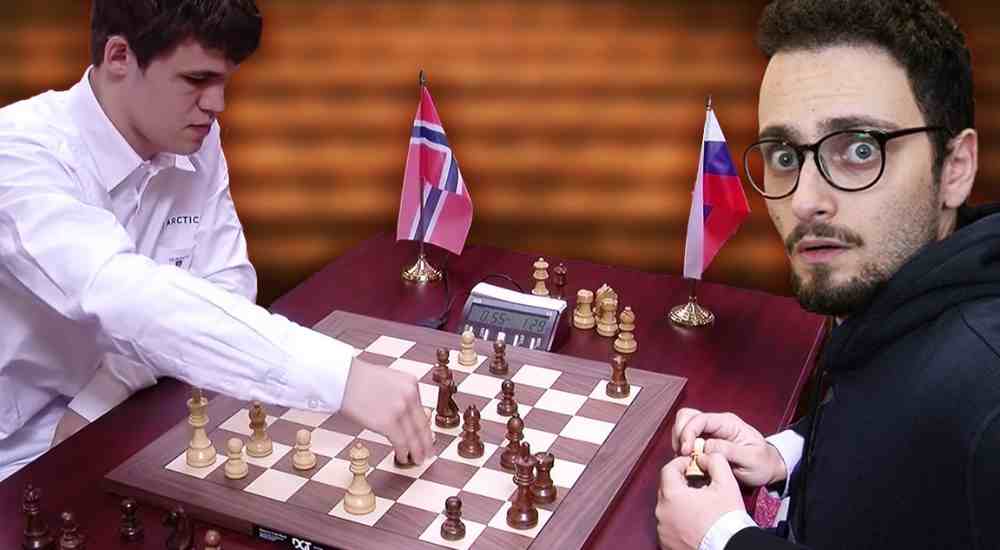National Chess Day is a celebration of a timeless pastime that has fascinated minds and challenged intellects for centuries. It’s a day dedicated to the game of chess, a game that transcends boundaries and brings people from all walks of life together. In this comprehensive guide, we’ll delve into the history, fun facts, and exciting activities that will make your National Chess Day memorable.
This day, recognized on the second Saturday of October, is a tribute to the strategic brilliance, camaraderie, and sheer joy that chess brings to millions of people around the world. Whether you’re a seasoned player or just starting, National Chess Day offers the perfect opportunity to engage with this intellectually stimulating game.
Our purpose here is to provide you with a treasure trove of information to make the most of this special day. We’ll take you on a journey through the rich history of chess, introduce you to intriguing fun facts, and offer a variety of activities that will allow you to celebrate National Chess Day to the fullest. So, let’s embark on this chess adventure and uncover the wonders of the game that have been cherished for centuries.
Summary of National Chess Day
| Date | Second Saturday of October |
| History | – Chess originated from Indian ancestor Chaturanga around 600 AD. – The game evolved over centuries. – Recognized and celebrated in the United States on October 9, 1976. |
| National Chess Day Timeline | – First chess tournament (1575) – Formation of the United States Chess Federation (1939) – Bobby Fischer wins World Chess Championship (1972) – Founding of the World Chess Hall of Fame (1986) |
| How to Celebrate | – Play chess with friends and family. – Join a local chess club or participate in a tournament. – Learn fun facts about chess. – Visit the World Chess Hall of Fame. – Watch movies related to chess. – Buy a new chess set. |
| Why We Love National Chess Day | – Chess enhances critical thinking and memory. – It boasts a rich history and cultural significance. – President Gerald Ford praised chess for sharpening minds and encouraging healthy competition. |
| Call to Action | – Share the content and engage with the chess community. -Explore more about chess, learn and improve your skills. – Make chess a part of your life beyond National Chess Day. |
History of National Chess Day
Origins of Chess
The roots of chess can be traced back to its Indian ancestor, chaturanga, which dates as far back as 600 AD. Chaturanga was not merely a game; it was a strategic tool used for training military minds and teaching the art of strategy and planning in warfare. The game evolved over time, spreading through various cultures, each adding its own unique touches.
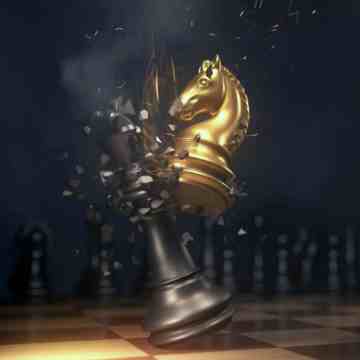
Evolution into the Modern Game
It wasn’t until several centuries later that chess, as we recognize it today, took shape. Books about chess started to appear in the 16th century, and significant changes were introduced to the rules and structure. Notably, the modern queen, a powerful piece, was introduced in the late 1400s during the Reconquista in Spain under Queen Isabella’s rule. These changes led to the dynamic and strategic game we know today.
Role of Famous Players and Recognition of National Chess Day
Throughout history, chess has seen remarkable players who left indelible marks on the game. One such player is Ruy Lopez, a Spanish priest and early chess luminary. However, it was Bobby Fischer, a child prodigy who became the first and only American-born person to win the World Chess Championship in 1972, who significantly elevated the status of chess in the United States.
In 1976, chess gained official recognition with then-U.S. President Gerald Ford declaring October 9 as National Chess Day. This recognition aimed to encourage individuals and groups to celebrate chess, enhancing their critical thinking skills and enjoying the game. Today, more than 100 countries worldwide recognize chess as a sport, and National Chess Day serves as a testament to the enduring appeal of this game of kings.
National Chess Day Timeline
Key Historical Events in Chess
First Chess Tournament Takes Place (1575): The world’s first informal international chess tournament unfolded when Italians Leonardo da Cutri and Paolo Boi ventured to the court of Philip II in Madrid. They faced Spanish chess legends Ruy Lopez and Alfonso Ceron. This historic event marked the beginning of competitive chess on an international scale, showcasing the game’s appeal beyond national borders.
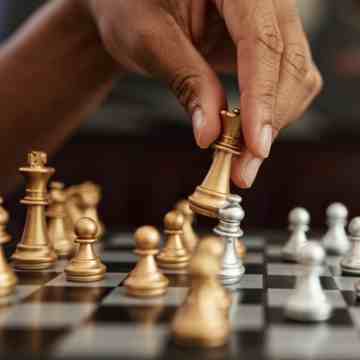
United States Chess Federation Formed (1939): In 1939, the American Chess Federation and the National Chess Federation merged to create the United States Chess Federation (USCF). This union marked a significant milestone in promoting and organizing chess activities in the United States, laying the foundation for the vibrant chess community we know today.
Bobby Fischer Wins World Chess Championship (1972): A chess prodigy from a young age, Bobby Fischer made history by becoming the first and only American-born person to win the World Chess Championship. His victory against Boris Spassky during the Cold War era was not just a personal achievement but a symbol of American excellence in the game.
First National Chess Day Is Celebrated (1976): The United States officially embraced chess when President Gerald Ford declared that National Chess Day should be celebrated on the second Saturday of October. This recognition highlighted chess as a game that sharpens the mind, tests human faculties, and encourages healthy competition.
World Chess Hall of Fame Founded (1986): The World Chess Hall of Fame, initially housed in the basement of the United States Chess Federation headquarters in New Windsor, New York, has evolved into a cultural institution celebrating chess’s heritage. With iterations in Washington, DC, Miami, Florida, and finally settling in St. Louis, Missouri, it continues to be a hub for chess enthusiasts.
Significance of Chess Events
These key historical events reflect the evolution and global impact of chess. The first chess tournament emphasized the universal appeal of the game, transcending borders and cultures. The formation of the United States Chess Federation laid the groundwork for organized chess in the country, fostering a thriving chess community.
Bobby Fischer’s triumph at the World Chess Championship symbolized the game’s intellectual prestige and its role in the Cold War’s geopolitical landscape. National Chess Day’s official recognition by President Ford celebrated chess as a game that challenges minds and encourages competition, drawing millions of enthusiasts to its board.
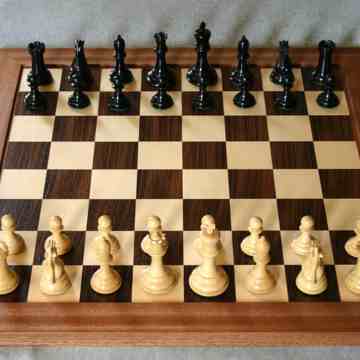
The founding of the World Chess Hall of Fame underscores chess’s cultural significance, providing a home for chess artifacts and a platform for outreach and programming. Each of these events has played a vital role in shaping the history and future of chess, making National Chess Day a day worth celebrating for players and enthusiasts worldwide.
How to Celebrate National Chess Day
National Chess Day is all about embracing the spirit of the game and enjoying its many facets. Here are practical and engaging ideas to make your National Chess Day memorable:
Play a Game of Chess with Friends and Family
Gather your friends, family, or neighbors and challenge them to a friendly game of chess. Chess is a game that transcends age and fosters bonding, making it an ideal activity to enjoy with loved ones. Whether you’re a seasoned player or a novice, a game of chess can be a great way to spend quality time together.
Join a Local Chess Club or Participate in a Tournament
If you’re passionate about chess and eager to test your skills, consider joining a local chess club or participating in a tournament. Chess clubs exist in communities around the world, offering opportunities to compete, learn, and connect with fellow enthusiasts. Many tournaments are open to players of all skill levels, making National Chess Day the perfect occasion to get involved.
Learn Fun Facts About Chess to Share with Others
Delve into the intriguing world of chess by learning fun facts about the game. Share these tidbits with your friends, family, or coworkers to spark conversations and kindle their interest in the game. Did you know that the term “checkmate” originates from a Persian phrase meaning “the King is dead”? These captivating facts add depth to your appreciation of chess.
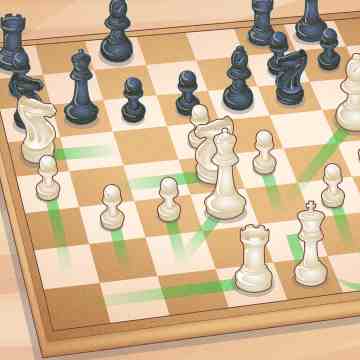
Visit the World Chess Hall of Fame
If you’re near St. Louis, Missouri, or planning a road trip, consider visiting the World Chess Hall of Fame. This museum is a treasure trove of chess history and culture. Explore the exhibits, view chess-related artifacts, and take part in programming and outreach opportunities. It’s a chance to immerse yourself in the rich heritage of chess.
Watch Movies Related to Chess
Celebrate National Chess Day by watching movies that revolve around the game. These films offer insights into the lives of chess players and the intensity of the game. Some notable recommendations include “Magnus” (2016), “Brooklyn Castle” (2012), “Pawn Sacrifice” (2015), and “Searching for Bobby Fischer” (1993). Grab some friends or family members and enjoy these captivating stories.
Buy a New Chess Set
If you’re a chess enthusiast or looking to start your chess journey, National Chess Day is the perfect time to invest in a new chess set. Whether it’s a magnetic travel set for on-the-go play or an intricately hand-carved marble or granite set for display, a new set can be a lasting memento of your love for the game.
Why We Love National Chess Day?
National Chess Day holds a special place in the hearts of countless individuals around the world. Here are the compelling reasons why chess is cherished, and why this day is celebrated with much enthusiasm:
Enhancement of Critical Thinking and Memory
Chess is more than just a game; it’s a mental workout. It challenges players to think critically, plan strategically, and anticipate moves ahead. Whether you’re a novice or a grandmaster, every game of chess is a unique puzzle that engages your intellect. The intricacies of chess sharpen memory, concentration, and problem-solving skills. As we celebrate National Chess Day, we celebrate the game that constantly tests and refines our cognitive abilities.
Rich History and Cultural Significance
Chess has an illustrious history that spans centuries and transcends borders. Its origins in ancient India, the evolution into shatranj in Persia, and its refinement into the modern game showcase the diverse cultural influences that have shaped it. Kings, nobility, intellectuals, and philosophers have all found solace in the game of chess. Its rich cultural tapestry is a testament to its universal appeal, making it a beloved pastime in countries around the globe.
In the words of former President Gerald Ford, “For both professionals and amateurs, chess is a game that sharpens the mind, tests human faculties, and encourages healthy competition. It has captivated the attention of players and spectators worldwide and will continue to do so as long as competition and excellence challenge mankind.” These words underscore the enduring allure of chess and its ability to captivate minds and hearts.
On National Chess Day, we come together to celebrate this timeless game that inspires us to think, strategize, and appreciate the beauty of intellectual competition. It’s a day that reminds us of the cultural significance and global appeal of chess, a game that continues to unite individuals across the world, fostering camaraderie and intellectual growth.
Call to Action
As we approach National Chess Day, we invite you to take an active role in celebrating this remarkable game. Here are a few steps you can take to make the most of this special day and extend your appreciation for chess beyond its boundaries:
Share the Content and Engage with the Chess Community: If you found this guide informative and inspiring, we encourage you to share it with your friends, family, and fellow chess enthusiasts. Spark conversations about National Chess Day and the game’s fascinating world. Connect with the chess community online and offline, sharing your experiences and insights.
Explore More About Chess: National Chess Day is the perfect time to delve deeper into the world of chess. Explore books, documentaries, and articles about the game’s history, strategies, and legendary players. The more you learn about chess, the more it enhances your appreciation of this intellectual pursuit.
Learn and Improve Your Chess Skills: Whether you’re a novice or an experienced player, there’s always room to grow in the world of chess. Use National Chess Day as a catalyst to learn new tactics, study famous games, and practice your skills. Join chess clubs, participate in online tournaments, and challenge yourself to reach new heights in your chess journey.
Make Chess a Part of Your Life Beyond this Special Day: National Chess Day offers a glimpse into the beauty of chess, but it’s just the beginning. Consider making chess a regular part of your life. Play with friends and family, mentor aspiring players, or engage in your local chess club. Chess is a game that offers lifelong learning and enjoyment.
National Chess Day is a reminder of the enduring appeal of chess, and an opportunity for chess enthusiasts to come together to celebrate this exceptional game. Let’s embrace the intellectual challenges, cultural significance, and joy that chess brings to our lives, and keep the spirit of National Chess Day alive throughout the year.
How to Play Chess?
FAQs
Is chess considered a sport?
Yes, chess is indeed considered a sport. It is not just a board game but also a competitive, demanding, and universal activity. The International Olympic Committee recognizes chess as a sport, and it even has doping controls. While it doesn’t involve physical exertion in the traditional sense, chess is a game that requires intense mental focus and strategic thinking.
When was chess invented?
Chess has a long and storied history, dating back several centuries. The game’s origins can be traced to around 600 AD with a similar Indian game called chaturanga. This ancient game served as a precursor to modern chess, evolving over time to become the strategic and intellectual challenge we know today.
Can chess make you smarter?
Chess is often lauded for its cognitive benefits. While it may not directly impact academic test scores, playing chess can improve various mental skills. It has been linked to enhanced mathematical skills, improved cognitive abilities, and better memory. Chess is an excellent way to sharpen critical thinking and problem-solving skills, making it a great exercise for the mind.
You Can Also Checkout Other Holidays:
- White Sunday In Samoa: Celebrating Childhood, Tradition, And Community
- The Battle Of Angamos: Date, History, Significance, Timeline, Facts, October 8
- American Touch Tag Day: Date, History, Significance, Timeline, Facts, October 8
- Simchat Torah: Significance, History, Customs, Traditions, Celebration, October 8

